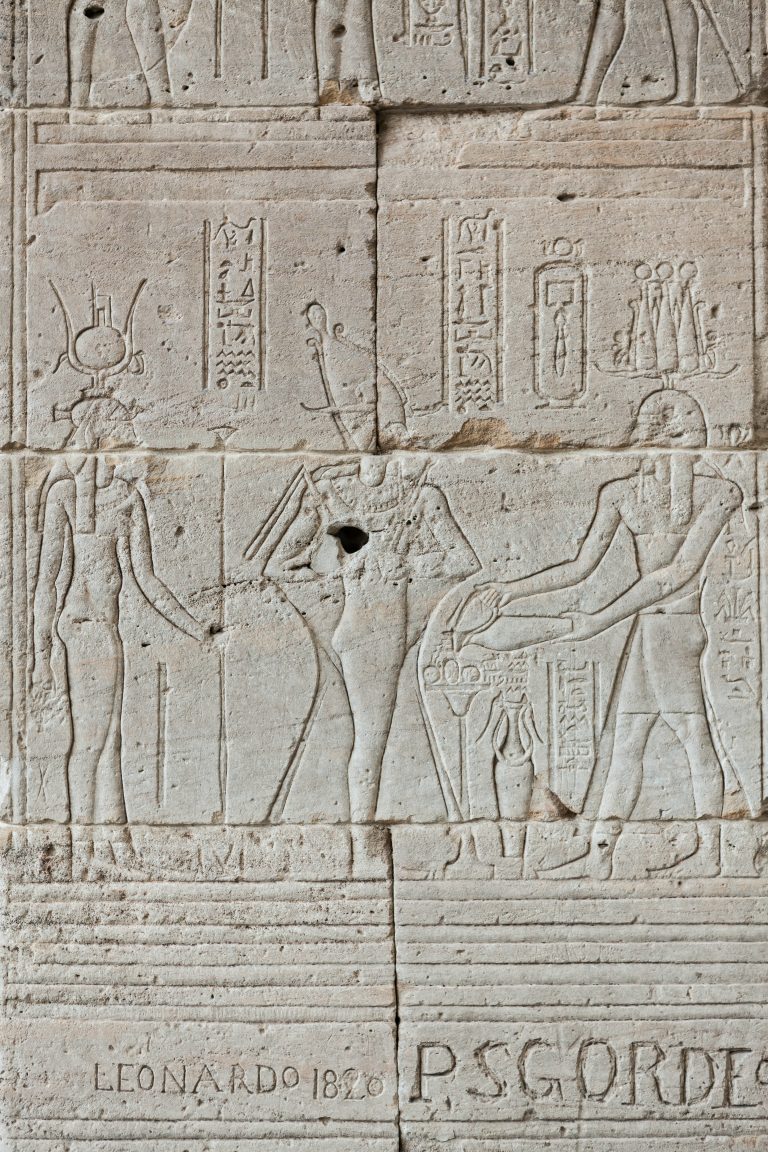Home > God at work: Egypt or Eden?
God at work: Egypt or Eden?
By Rachel Martin
I am sure if I surveyed 100 people about their thoughts on ‘work’, I would get a fairly complex array of emotional reactions. A colleague of mine recently described work as being definitive. “You can tell a lot about a person from their work ethic and even more by the work they do,” she said. It got me thinking, if work can tell us so much about a person, how should we work? What can we reveal about ourselves, and even about God in the way we work?
In order to answer this question, I looked at some different working environments found in scripture and what God says to His people, I have drawn out a few things that I feel may help us to think about this.


Eden
The first time we encounter work in Scripture is in Eden. If you are familiar with the story, you will know that it tells the story of the beginning of time, of creation itself. Using the art form of poetry it tells us how God worked and created the world. It talks of partnerships like night and day, land and sea, birds and fish, before we approach his final pairing- man and woman. God created man in his image, literally breathing life into Adam, a beautiful intimate moment that marked humanity as set apart. Set apart by entering into a relationship with God, set apart by delighting in his creation and set apart by working.
Amongst the first things that God says to Adam is the instruction, “be fruitful and increase in number; fill the earth and subdue it. Rule over the fish in the sea and the birds in the sky and over every living creature that moves on the ground.” In this simple sentence he gives Adam freedom to create, responsibility and authority. All things that reflect God himself.
The first notable thing here is that work is part of God’s perfect design, before sin and darkness had entered the world. Part of our relationship with God is working with him.
God’s model of work: partnership
In Genesis 2 we see these things outplay when God tasks Adam with naming all the creatures. Adam is asked to use the gifts that God has given him, with the authority God had given him to do the tasks God had given him. God delighted in what He had created and with everything in Eden being perfect, we can assume that Adam probably enjoyed it too!
The example of work we see in Eden is a partnership; it is man reflecting God’s nature the way he was designed too. Man using his God-given responsibility and God-given gifts to cause the world to flourish, making space for His creation to thrive, centred around Him and His purposes, and most importantly, centred in love.
This is the perfect example of work, the way work was designed to be and it holds a stark contrast to our second working environment; Egypt.


Egypt
In 1446BC God’s people were enslaved in Egypt. Exodus 1 reads, ‘the Egyptians made the Israelites their slaves. They appointed brutal slave drivers over them, hoping to wear them down with crushing labour.’ We read that this was because the people of Israel, God’s people, were outnumbering the people of Egypt. The Egyptian Pharaoh felt threatened.
He wanted to prove his kingdom/ empire was the strongest and most powerful. The people of Israel were working long hours, with abusive bosses, poor pay and little reward.
The working environment looked totally different to Eden; no freedom, no delight or joy and no relationship or partnership. The work was creative, but not for God’s glory – it was for Egypt’s glory. And ultimately, nothing was flourishing. The relationship between Pharaoh and the workers was not a partnership, it reflected more of a dictatorship – the people of God were stripped of any level of authority or freedom.
It is worth acknowledging here that in both environments, God’s purposes still happen. The two environments we see here are a perfect depiction of the effects of the ‘fall’; we see what darkness brought into the working world. Helpfully, we can see that work itself was not a result of the fall, but rather has always been a part of God’s plan (though it may not feel that way sometimes!)
What does this tell us?
Fast forward to today, and what do we know? What do these environments tell us about how we should work?
The first thing we learn about humanity is that we are all made in the image of God, all created in his likeness, meaning we have the gifts God has given us and the commission God has given us, but we are living in a broken world. Since sin and darkness came into the world, our work places are far more like Egypt than they are Eden. You could say that we are living in Egypt.
How then, should we respond to this? If we are working in a broken world, in environments where the ways we can follow God’s original commission don’t always seem obvious, how are we supposed to view work?
Partnership restored
We find our answer to this again in the commission God gives to his people. But none of this will make sense if we don’t understand that there is a key difference between Egypt and our working environments; we are now in relationship with God again.
We know that Jesus fixed the relationship between God and man that darkness had broken, by dying a death meant for sinners and defeating all of the darkness in the world.
The partnership had been restored and Jesus had left us with another gift; the Holy Spirit. Jesus describes the Spirit as a helper. “I will ask the Father, and he will give you another helper who will be with you forever. That helper is the Spirit of Truth. The world cannot accept him, because it doesn’t see or know him. You know him, because he lives with you and will be in you.”
We could have a whole other article based on all the ways the Holy Spirit can help us, but to summarise- the bible tells us that the Holy Spirit equips us with tools such as: wisdom, eternal perspective, comfort, joy, strength, all the fruits of the spirit, amongst many more.

For me working in a secondary school as the manager of alternative provision, I see the education system fail children every single day. I see the impact of sin and darkness on the world, I see the destruction and despair that is left and the hopelessness that can subsequently reign.
But everyday I am equipped by the Holy Spirit to carry out the commission God has given me. I use the authority He has shared with me to confront the darkness and bring light, I use the gifts he has given me to help people and my working environment flourish, I know the freedom he has given me means that the darkness and difficulty doesn’t have to be king, doesn’t have to hold me back or weigh me down. I can go into work knowing who I am, knowing who I am working with and why I am working.

The answer? Knowing who we are.
Our identity as children of God reveals our ‘set-apartness’ (we can pretend that’s a word). Part of the brokenness of our world, particularly in the West, is that humans are trying to find and prove their identity, trying to find their purpose.
But we have found these things in Jesus.
So how are we to work? Simply put; by understanding our identity and equipping in God. This looks like understanding the authority He has given us, the commission He has given us, actively using the tools He has given us. It means knowing who we are in Him – our first and most defining identity, and knowing what we have in Him. We are to work with the aim of making our environments and people around us flourish, with the aim of glorifying God and partnering with God.
We are to be Eden-minded image bearers in an Egypt landscape.
Talk to a Mentor
What hit home for you in this article? Would you like to discuss anything in particular?
Just fill in the form below and one of our mentors will get back to you as soon as possible.
Our mentors aren’t counsellors, but they are ordinary people willing to join others on their spiritual journey in a compassionate and respectful manner.

